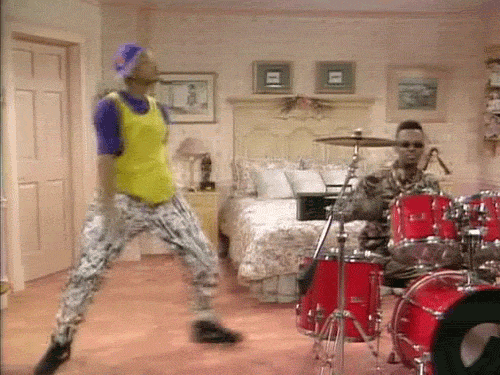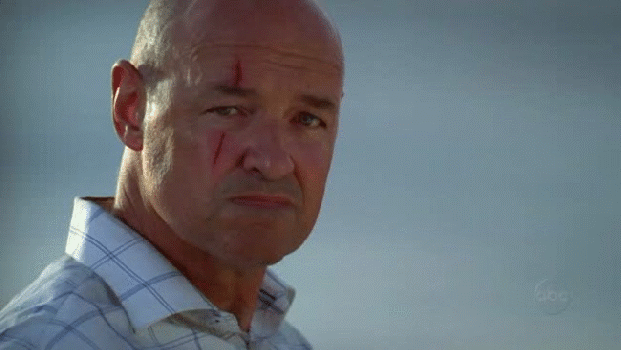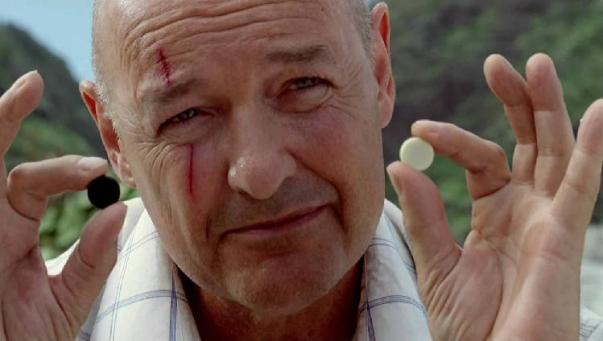I drafted this post one week ago. One week ago, I conceded that I would not be able to complete the first draft of my novel-in-the-works by January 1st. Originally, the tone of this post was somber and slow. I wrote it late at night and it read like a bummer. So I scrapped it entirely and rewrote it in light of reflection. Here’s what I’ve got.
____
I kicked ass this month. From December 1st to December 21st, I was getting 4-5 hours of sleep because I was writing into the early hours of the night. Through these 21 days, I was ill and amidst Finals season. Nonetheless, in face of the phlegm, the sleep deprivation, and the Latin (blast you, Latin!), I was happy, driven, and willing to work into the early hours. I made bounds. Picture an artist splattering paint onto a canvas with a stupid grin on his face. That kind of progress. “Oui oui. Zees is amour!” (Do I have any followers from France? I know I have Canadians and Aussies and Brits and Turks, but where are the Frenchmen at?!)
On December 22nd, I boarded a plane for California. (I don’t believe I’ve yet mentioned that I lived in the Golden State for four years. To quote Dave Matthews, “I got people here.”) This may sound familiar to you because I wrote a post the following day about how I wrote five hours on the plane.
Upon arriving, I gave my situation some thought. I hadn’t reached the home stretch of the story. I hadn’t set myself up for a knockout on January 1st. Thus, I decided that it would make the most sense to put the writing aside so I could fully enjoy my time with friends and family. I’ve made some writing progress in spare moments, but I’ve largely put the novel-in-the-works to the side for the duration of the trip. My efforts have been focused on one chapter, which begins, “It was a horse-faced lady wearing a housewife’s apron who pointed the boys to Carmengrove.”
So I’m here in Cali for a couple more days before I fly back to Jersey (where we say cawfee and wahta). Once I return, I’ll be back into writing mode. But things need to change. I made a strong effort to write consistently for the better part of December, but I hadn’t exercised that level of resolve prior. I wrote, no doubt about it, but I didn’t make it a point to write every day with such ferocity. I’ve taken this week to reflect and evaluate what I can do moving forward to blaze the trails of ink. It’s taken a hearty dose of honesty to reach some of these determinations, but I’m a believer that honesty is better than any alternative. Here goes.
For the sake of organization, I’ve pinpointed changes that need to be made in terms of both addition and omission.
Addition
Let’s start with addition. I asked myself, what am I lacking that I need?
My buddy Aurelius has been a huge supporter of my writing journey. He’s given me a book on publishing, talked shop with me, and asked for updates as to my progress. When I recently told him I didn’t expect to meet my deadline, he presented me with the “environment over effort argument,” something articulated by James Clear. Aurelius summed it up as follows:
It’s this idea that personal willpower is an imperfect basis for important habits. It’s better to construct an environment that facilitates the habit and to immerse yourself in it. Stephen King writes in a barn that just has a desk and a window in it.
Aurelius has a point. I am driven. (Sure, I talk, but I talk because I’m sharing my journey with you. There’s work to show for the talk. You can see my progress updated weekly on my Projects page and I dedicate a post a month to my progress alone.)
Still, my drive is not infallible (My Latin grade is evidence of that. Blast you, Latin!). I need an environment which facilitates the drive. In other words, I need to make my life easier. When I return to Jersey, I’m going to scout my house and find the best area where I can write with minimal external distraction and maximum convenience. I’ll need an outlet nearby for my laptop charger and a nice chair. Of course, I can scrap all that if I build a writing barn. If anybody would like to loan me money for a writing barn, you can email me at jjazarauthor@gmail.com.
So that’s the first thing: I’ll need a writing spot. If floating around helped me to write, I would float around, but it doesn’t. Thanks, Aurelius.
My status as a student prevents me from designating an hour-based time block to my writing. I can’t declare 8 PM a writing time because sudden assignments and due dates prevent me from operating that way. It just won’t happen. Still, I recognize that I need structure. I need a routine to facilitate and focus my drive.
I’ve determined that I write best at night, when there are no longer any non-writing obligations for me to fulfill. Therefore, I will make it a point to work in the nighttime in my to-be-determined writing environment. Sometimes I’m beat by the time I take care of everything I have to do, but if I wrote 21 days straight in the early hours while sick and after preparing for finals, I think I can manage to implement this dynamic of a set time and place.
For years, I’ve been on and off with working out. Recently, I’ve been off. I’m healthy, thank God, but I’m not where I want to be. Working out boosts the mood and keeps me sharp. If I want to write this first draft and beyond, I’m going to need to be in top shape.
The addition in this case is straightforward: my university has a decked-out gym. I’ve resolved to use it as soon as I return from break. This semester, I have classes four days a week. I will make it a point to go to the gym every day before I leave campus.
A healthy writer is a happy writer.
Writers know the joyous feeling of flow. Sometimes, we are able to reach a happy place and write without stopping, without hesitation. It’s a beautiful thing. When the ocean of bliss subsides, we notice the clock and sit dumbfounded. “I was writing for that long?” I want to reach that sweet spot as often as possible.
Tam al’Thor of the Wheel of Time series taught his son Rand al’Thor how to enter “the Void,” a state of extreme focus. I long for the Void, yet I don’t know how to grasp it. As of now, the Void falls into my lap whenever it pleases. I want the Void to fall into my lap whenever I please. Well, the Void or a leggy lady. One of the two.
If anybody has any insight into focus and concentration methods, particularly as they pertain to writing, I would be delighted if you would share them.
Omission
I asked myself, what do I have which I do not need?
80% of my YouTube consumption is related to politics (didn’t you hear that the U.S. is having quite an interesting time with politics and things?). I’ve always been one to keep informed, but YouTube is a time-drain.
Solution: My dad will keep me in the loop. He has a knack for picking out the truth through all of the smoke and mirrors. I’ll still be reading news for my Politics classes, but aside from that, I haven’t the time to bother with fiction peddled by the nightly news. I have fiction of my own to peddle.
I know, I’m essentially broadcasting my age. I get it, I’m a young lad. But one cannot deny that BioShock Infinite is a freakin’ fantastic Xbox One game. To my credit, I haven’t touched the console this entire month, and I hardly play as it is. Still, it has to be declared: I cannot play BioShock Infinite until a more opportune time. The game is remarkable, but now is not the time.
Before I settle into writing, I like to get music going. The problem is, it often takes me ages to search for the first song to play even though I have an extensive, nearly exclusively instrumental playlist. It needs to stop. This may sound like a small thing, but it’s a tiresome focus leech. I used to write to a loop of a couple of songs. Now I’m back to the basics!
My sisters give me crap for this on a daily basis. I just recently returned to Snapchat after a short, frankly pitiful stint years ago during which I actively bored myself using the app. The thing is, this time around, I’m having fun. Yeah, I raise the phone in front of my face to take stupid pictures that will be seen for 10 seconds or less. It’s stupid. I get it. It interrupts my writing. I get it. But keep in mind, I’m not conversing with the Snapchat ghost, I’m conversing with people. A couple of people, to be more specific. As I see it, that’s not a waste of time.
So, maybe I should excommunicate Snapshat from my life, but I’m not quite ready to do that. Depending on how the tides ebb and flow, I may or may not keep on with it. Time will tell.
“*gasp* JJ, you’re leaving WordPress?!?!”
No, disembodied voice. I will do nothing of the sort. I’m here to stay.
“Darn.”
I appreciate that, disembodied voice. You always have my back.
I’m still going to post twice a week. I’m still going to read your blogs and respond to your comments. I’m still going to compulsively check my stats. The difference is, I won’t do any of this when it’s time to write. It’s always tempting to change tabs and check into the blog when writing gets tough, but I’m just going to have to fight it like how teenage indie-punk artists fight their parents: that is, with passionate angst.
___
In my first blog post, I acknowledged that there would be stumbles. I wrote, “As I brave the Road of Authorship, stumbling over every rock on the way, I invite you to walk alongside me so you can point and laugh and cheer as I fall on my ass and get back up again.”
Yeah, I fell on my ass, but much to my surprise, I haven’t disappointed myself. Rather, I’m optimistic. I have a sober plan and method ready to be implemented. I hope I haven’t disappointed any of you. Your encouragement, advice, and immensely kind words fueled me through this entire month. I cannot express my thanks adequately enough. Thank you. I hope you decide to stick with me as I continue this grand, exciting journey.
I promise to share a new, reasonable deadline by the end of this month.
As always, stay classy.
~J.J. Azar






















